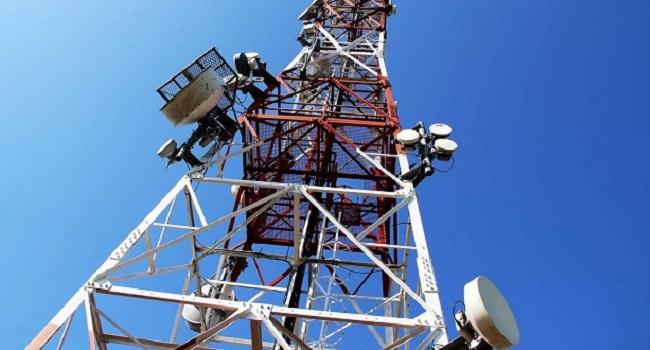This post has already been read 1147 times!
The mobile technology ecosystem generated $1.8bn revenue in form of taxes to the Nigerian government in 2017, a latest research by the Global System for Mobile Association has shown.
Findings by GSMA indicated that the total tax contribution of the mobile ecosystem in the year under review was equivalent to 16 per cent of government tax revenue.
The association, in its report entitled, ‘Spotlight on Nigeria: Delivering a digital future’, also said the mobile ecosystem accounted for 5.5 per cent of the country’s Gross Domestic Product in the same year, which is $21bn.
In addition, the report stated that the business activities of operators in the GSM industry had also created 500,000 jobs for Nigerians.
The mobile ecosystem is made up of original equipment manufacturers, the mobile network operators, the content and infrastructure providers and other support services providers.
According to GSMA, mobile technology is having a direct and positive impact on the daily lives of Nigerians, by fostering inclusive growth and enhancing the productivity and efficiency of the economy.
“Growth in the adoption of digital services by government, businesses, and consumers is having a positive impact on daily life in Nigeria. Mobile technology is playing an increasingly central role in the country’s economy and, for the majority of Nigerians, mobile broadband is the first and only technology for accessing the Internet, opening the door to a whole new world,” it added.
Commenting on the findings of the association, the Head of Sub-Saharan Africa, GSMA, Akinwale Goodluck, predicted that the next level of fast mobile connectivity had potential to open up new digital possibilities.
He advised the Nigerian government to take full advantage of emerging technology that would foster inclusive growth and enhance the productivity and efficiency of the economy.
The association identified the release of harmonised spectrum and a modernised licensing framework as fundamental building blocks for Nigeria’s digital future.
“The harmonisation of 1427-1518 MHz and 3.3–3.6 GHz makes them critically important bands for mobile operators seeking to offer new mobile services to consumers and businesses.
“Making these bands available for assignment to mobile operators will be a core component in reinforcing Nigeria’s position as Africa’s leading mobile market,” the report stated.
Meanwhile, NCC’s monthly statistics showed that the country gained a total of 3,179,670 users of mobile telephony services in the month of October.
As such, GSM users hit 164.9 million subscribers in the month of October from 161.7 million subscribers in September.
According to the data, MTN gained the highest number of subscribers in October, adding 1.49 million users to its network, followed by Airtel, which recorded 956,348 new GSM users.
New users on Globacom network amounted to 725,406 while 9mobile gained the least number of new subscribers at 6,610.
[Punch]



